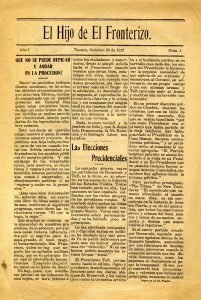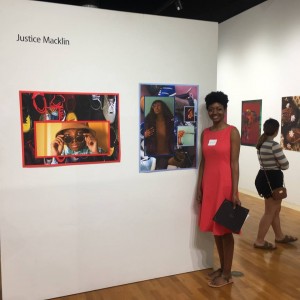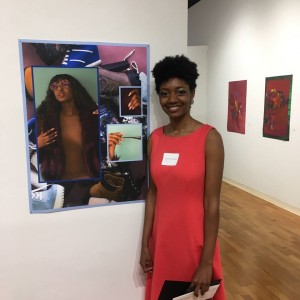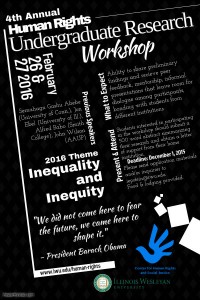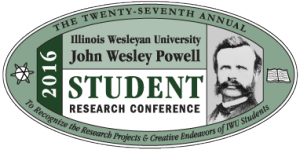 Illinois Wesleyan offers unique and significant opportunities to encourage and recognize student research. In fact, nearly every program listed below was created by former faculty members, university leadership or alumni who wanted to offer students the same opportunities they enjoyed.
Illinois Wesleyan offers unique and significant opportunities to encourage and recognize student research. In fact, nearly every program listed below was created by former faculty members, university leadership or alumni who wanted to offer students the same opportunities they enjoyed.
The Eckley Summer Scholars and Artists endowment supports summer research and creative activity for several students each year, enabling them to stay on campus over the summer to work under the direction of faculty mentors. The program was established by the late President Emeritus Robert S. Eckley, his wife Nell and the Eckley Family Foundation.
Award: $4,000 (must be a currently enrolled student to qualify)
Eckley Scholars:
2015: Stephanie AuBuchon ’16, David Allen Flowers ’16, Michelle Riechers ’16, Ryan Schonert ’16, Wenting Zhao ’18
2014: Natalie Hoijer ’15, Mike Kistner ’15, Niccole Nelson ’16 , Thomas Simmons ’15 and Kiri Stauch ’16
2013: Maggie Zhou ’14, Timothy Mueller ’14, Sarah Menke ’15, Molly Guenette ’14 and Ryan Winter ’14
2012: Sarah Takushi ’13, Dustin Springer ’13, Rachel Branson ’14, Justyna Koscielniak ’14 and Daniel Maurer ’12

Andrew W. Mellon Foundation Humanities Scholars
The summer Humanities Scholars program is open to students in all disciplines for projects grounded in the humanities — Greek and Roman Studies, English, History, Modern Languages and Literatures, Religion, or Philosophy. Each scholar will collaborate with a faculty member.
Award: $4,000 (must be a currently enrolled student to qualify)
Mellon Scholars:
2015: Lydia Hartlaub ’16, Anna Lowenthal ’16, Nicholas Berardelli ’16
2014: Timothy McDunn ’16, Lisa Mishra ’15, Colleen O’Connor ’14 and Nathaniel Douglas ’15
2013: Mallika Kavadi ’15 and Joseph O’Brien ’14

The John and Erma Stutzman Peace Fellows Program was created in 2007 to encourage talented Illinois Wesleyan University students to pursue focused study in areas involving peace, conflict resolution, and social justice, areas that reflect the broader University mission. Students are awarded a stipend to support their selected projects.
Award: $1,000 (must be a currently enrolled student to qualify)
Peace Fellows:
2015: Nicole Jovicevic ’16, Kira Miller ’16, Jennifer Prochotsky ’16, Hannah Scatterday ’17
2014: Jeremy Duffee ’14; Chelsa Green ’14
2013: Yelei Kong ’13
2012: Alejandro Monzón ’13
2011: Megan Thompson ’12
2010: Gwen Robinson ’11
2009: Emily Coles ’11 and Jessica Meyer ’11
2008: Marie-Claudine Villacorta ’08 and Monica Shah ’09
2007: Holly Aldrich ’09 and Daniel Burke ’09

Elizabeth Weir Action Research Fellowships are distributed through Illinois Wesleyan’s Action Research Center (ARC), which links Illinois Wesleyan students with research projects involving local not-for-profit organizations. Candidates should develop projects that make a meaningful impact on the community.
Award: Up to $1,500 (must be a currently enrolled student to qualify)
Weir Fellows:
2015: Leo Martinez ’15, Nettie Rauch ’15, Jacquelyn Schirmacher ’18, Amanda King ’15, Rachel Shaffer ’17
2014: Lexia Swope ’15 and Julie Lewis ’16
2013: Matt LaLonde ’14, Annette Rauch ’15, Dave McGrath ‘5 and Meagan DeSalvo ’15
2012: Ryan Dyar ’14 and Danny Kenny ’13
2011: Kaitie Fancher ’11 and Matt Hill ’12
2010: Lindsey Haines ’10 and Kenny Woodard ’10
2009: Sneh Rajbhandari ’09 and Danny Burke ’09
2008: Laura Maxwell ’09

Criley Student Research Endowment
The Criley Student Research Endowment, established in 2008 by alumni in honor of retiring biology faculty Bruce and Norma Criley, provides summer research opportunities in the sciences.
Award: $4,000 (must be a currently enrolled student to qualify)
Criley Research Fellows:
2015: Rachel Ende ’16, Blake Beehler ’16
2014: Lydia Rudd ’16

Mark Israel Endowed Summer Research Fund in Economics
Mark Israel ’91 established an Endowed Summer Research Fund in Economics, providing students with the same experience he valued as a student — the opportunity to perform topical economics research, working in close collaboration with members of the economics faculty.
Award: $4,000 (must be a currently enrolled student to qualify)
Recipients:
2015: Lu Liao ’17
2014: Andy Dao ’15
2013: Ben White ’14
Bill Murphy Research Fellowship Scholar
Recipient:
2015: Matthew McGill ’17

Zoellick Fellowship in Social Entrepreneurship
Todd Zoellick, a class of 2000 graduate, donated funds to allow the Action Research Center to offer the Zoellick Fellowship in Social Entrepreneurship to IWU students.
Award: $1,500 to help implement a business idea
Recipients:
2015: Dave Myers ’15 and Boryana Borisova ’17
2013: Vanessa Macias ’14 and Josh Wiggs ’15

Luis Leal Endowed Scholarship
The Luis Leal Endowed Scholarship is available to qualified students who carry out Hispanic Studies research off campus in an IWU-affiliated program.
Award: Up to $1,000 (must be a currently enrolled student to qualify)
Recipients:
2015: Martha Aguirre ’17
2014: Thalia Novoa ’16 and Huyen Nguyen ’17


